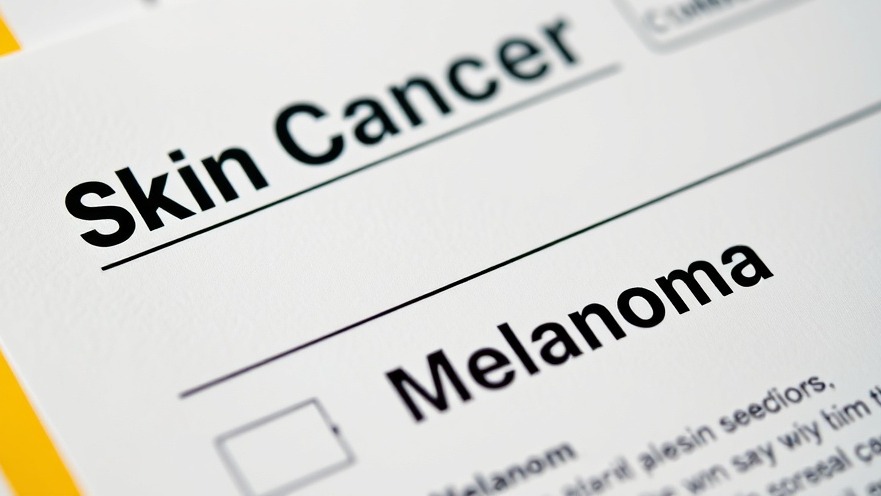
Understanding Psoriasis: More Than Just a Skin Condition
Psoriasis is not merely a skin ailment; it is a chronic autoimmune disorder that affects millions globally. This condition, characterized by red, itchy, scaly patches, often emerges on the elbows, knees, scalp, and lower back. The rapid skin cell production seen in psoriasis is due to an immune system malfunction that mistakenly targets healthy skin cells. Various types exist, including plaque psoriasis, guttate psoriasis, inverse psoriasis, pustular psoriasis, and erythrodermic psoriasis, each presenting unique challenges for sufferers. The fact that many health-conscious career women might overlook the psychological impacts of this condition is alarming, as research indicates that individuals with psoriasis can experience heightened risks of depression, anxiety, and other comorbidities.
The Silent Emotional Toll of Psoriasis
Living with psoriasis transcends the physical manifestations of the disease; it encompasses significant emotional and social challenges. The visible nature of psoriasis can lead to stigma and discrimination, impacting social interactions, job prospects, and overall life satisfaction. It reinforces the need for increased understanding around the condition, particularly among professional circles where appearance may influence perceptions of competence and capability. There is an undeniable emotional weight carried by those living with the disease, which can hinder their pursuit of beautiful skin and career aspirations alike.
Why Psoriasis Awareness Should Matter to All
Packing information into Psoriasis Awareness Month, we see an opportunity to dismantle myths surrounding the condition. Understanding what psoriasis truly entails helps to generate empathy and compassion, crucial elements for reducing stigma. Healthcare professionals, employers, and even peers must educate themselves to foster environments supportive of those affected. Additionally, heightened awareness can lead to crucial funding for research initiatives, ultimately translating into more effective treatments and support systems.
Empowering Those Affected by Psoriasis
Awareness initiatives serve as platforms for connection, enabling individuals with psoriasis to share their experiences and find community support. Organizations like the National Psoriasis Foundation offer resources for those seeking information, treatment options, and emotional support. Engaging in these campaigns not only helps those directly affected but also builds a sense of camaraderie and understanding among larger communities, comprising both patients and advocates.
Actively Contributing to Psoriasis Awareness
Getting involved during Psoriasis Awareness Month can take multiple forms. Educating oneself about this autoimmune condition is essential—doing so allows health-conscious individuals to share and promote reliable information within their networks. Supporting research is another impactful way to make a difference. Donations to relevant organizations can significantly bolster their efforts to advance treatment solutions. Simple acts, such as discussing dietary impacts—like incorporating a clear skin diet with herbs tailored for skin health—can create ripples of awareness and support.
Concluding Thoughts: Join the Movement
The conversation about psoriasis shouldn’t just happen in August; it requires ongoing discussion year-round. The desire for beautiful skin drives many individuals to explore various skin care solutions, but understanding the underlying issues related to psoriasis can illuminate a more empathetic approach. By educating ourselves about this condition, we empower ourselves and others to move past stigma and isolation towards a supportive environment. And remember, your contribution—whether it’s sharing knowledge, volunteering, or donating—can make a lasting impact. Let’s join together in the fight against misinformation and advocate for those who endure psoriasis daily.
 Add Row
Add Row  Add
Add 




 Add Row
Add Row  Add
Add 

Write A Comment